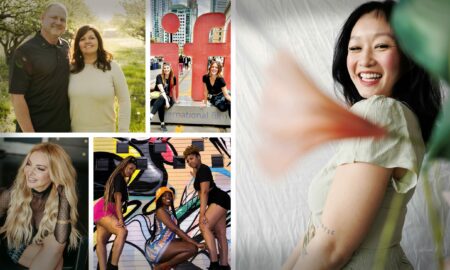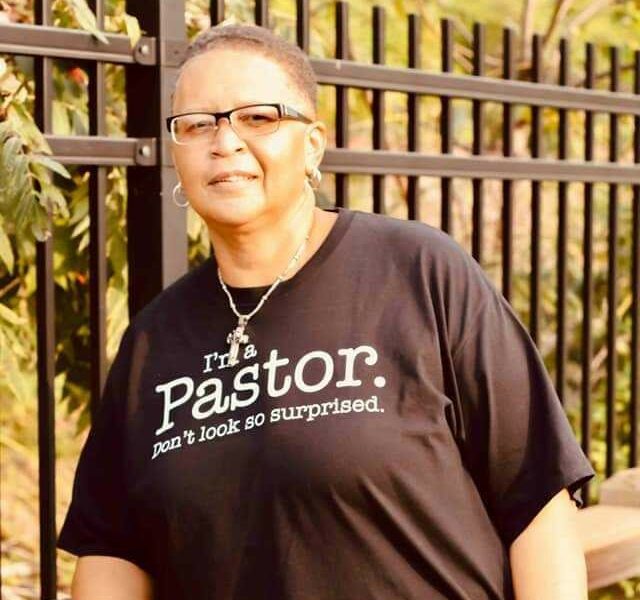

Today we’d like to introduce you to Rev. Dr. Dionne T. Boyice.
Hi, Rev. Dr. Dionne; thanks for sharing your story with us. To start, you could tell our readers some of your backstory.
Since I was a child, I’ve known that there was something different about me. I knew I had a crush on my Kindergarten teacher. I knew I thought girls were cute. I hated dresses and preferred T-shirts, jeans, and tennis shoes. I haven’t believed that any of that was okay or “normal” since I was a girl. It wasn’t normal to have a crush on my female teacher. It wasn’t normal for me to daydream about the girls in my class. It wasn’t normal for me to like girls “like that.” After all, the preacher talked weekly about it being “against God.” So, I lived my childhood, teen years, and a portion of my adult life denying my true feelings, my true self, because it wasn’t “normal.” I grew up in the church and continued to hear that God didn’t love people like me. I was told over and again that there was something wrong with people who had sex with people of the same sex. “Homosexuals,” they called them. Girls could not like girls, and boys definitely could not like boys. If they did, they were going straight to hell because they were the devil’s children and “needed deliverance.” Having been in church all my life, I believed it because God said it, right? Or at least that’s what the preachers kept saying. Therefore, since God didn’t love me, I felt the need to “hide” my true self so God wouldn’t send me to hell.
It wasn’t until well into adulthood that I felt comfortable with my true identity. I grew tired of feeling lost within myself because I was not living an “out and free” life. It became overwhelmingly depressing to live a double life. Hiding my true self caused me to live according to my environment. At school and church, I had to pretend to like boys. But in my world and the quiet of the night, I knew who I was and how I truly felt about girls and women, but I felt I had to suppress those feelings. Ironically, it was through seminary, God, and the church, the White church, that I was able to set myself free to be who my Creator created me to be. In 2017, I was coming to the end of my Master of Divinity seminary studies, and one of my World Religion class assignments was to attend three different worship/church services that were completely different from my church tradition. I participated in a Synagogue service, a Mosque meeting, and an all-White United Church of Christ (UCC) worship service. Although the UCC church was a Christian church, it was a total change in worship style and congregation, so I decided it would count as a “different” type of worship, and boy, was I right!
I chose to visit the church one of my classmates attended. She identifies as queer and was working as a student minister there. I was very intrigued by how she pulled off being a leader in the church while identifying as queer. I had never heard of anyone from the LGBTQ+ community being allowed to be anything but a pew warmer and a tither at the churches I had been a part of. I entered that UCC church and was floored when I saw how many people were there comfortably worshipping and holding hands with their LGBTQ+ partners and spouses. I was almost afraid to stay there for worship because the churches I grew up in said God would destroy a church like that because God had destroyed two cities for it. But this church was different.
The Pastor was teaching the scriptures but not bashing anyone for who they were or loved. And he, indeed, didn’t preach hell and damnation to the LGBTQ members in that congregation. This White Pastor taught about the love of Christ and why Christ loves us, all of us. I had never heard anyone preach such a loving and kind message about God or Jesus. I was overwhelmed with relief at the end of that worship service because I was holding my breath, waiting for this good Christian preacher to start condemning everyone in there to hell. But that never happened. I left that service feeling like I had found my tribe and that I had found a new church home. I was so excited and didn’t care that no other Black people were in the church. I was home! I didn’t even miss the Black worship tradition I was used to. It meant more to me to be accepted and affirmed than to hear the whooping preacher or the good ol’ Black gospel songs.
You see, the Black church in Kansas City, Kansas, and Kansas City, Missouri, did not have a church or place of worship that welcomed, affirmed, and unconditionally loved people from the LGBTQ+ community. So, there needed to be a space created for safe, loving, open, and affirming worship. I had been attending that UCC church for about a year when I was invited to preach for the first-ever Black Pride worship service in Kansas City. I was excited to do this because I wanted to teach my LGBTQ+ siblings of color what I had learned about a God who loved us despite who we loved. I was so ready and overjoyed for that day to come. In August of that year, I preached for that worship service. A couple hundred people showed up at church that day. Ninety percent of them were LGBTQ+ people of color who came to that worship service because they knew they would be spiritually safe with a “gay pastor” preaching the sermon. They didn’t have to worry about being condemned to hell from the pulpit. Most of them had not been to church in years, if ever.
After that service, at least 50-60 people approached me and my wife and asked us where the church I pastored was located. Well, I didn’t have a church. I was there to preach for that day. Two months before that worship service, one of my closest friends asked me to hold a Bible study in my basement so that she and her wife could learn about God and worship together since none of the Black churches wanted them in their congregations. My wife had also told me that she believed God wanted me to start a ministry or group for LGBTQ+ people to learn about and worship God. So, when it came time for me to decide on a senior project for my seminary studies, I remembered the people at that PRIDE worship service. I remembered my friend Donna, and I remembered my wife asking me about starting a place to worship for our LGBTQ+ community, especially the Black LGBTQ+ spiritual community. Therefore, I decided that planting a church for our community would be a good project and a great idea.
I planted the church and named it WHOSOEVER: Community Of FAITH* (WCOF), with FAITH being an acronym for Finding Answers In The Hurt. I decided on this name because of the scripture in John 3:16, which declares that God loves every last one of us, WHOSOEVER we are. Also, most of the people coming to and attending WCOF were dealing with some church hurt, spiritual abuse, religious trauma, or moral injury. Therefore, our ministry focuses on healing these hurts and creating or re-establishing a relationship with our Creator and spiritual communities. After two years, we changed the FAITH acronym to Finding Answers In The HEALING. We felt that “finding answers in the hurt” did not lend itself to positive thoughts and processes toward healing the brokenness that was created through our religious trauma. Although COVID caused our in-person attendance to drop drastically, we are still 1200 strong on social media after seven years of loving and welcoming all of God’s creation to the table. Unfortunately, some people believe WCOF is simply a “gay church.” That we teach and preach a gay agenda. This is so far from the truth. Although 80% of our ministry is made up of LGBTQ+ members, many members are allies and those who don’t identify as either. We are simply a ministry that loves all people no matter who or what they are, who or what they’ve done, or who or what they believe in. We love people, just as our Creator loves us all, who we are!
We all face challenges, but looking back, would you describe it as a relatively smooth road?
Being a Black woman pastor who identifies as LGBTQ brings about plenty of challenges in and of itself. In much of the Black church, women are not seen or recognized as preachers, teachers, or pastors. Therefore, planting, creating, maintaining, and moving forward in this ministry has been one of the most complex and difficult paths I’ve ever walked. So, I began this journey with the odds already stacked against me. The backlash and negative reactions, comments, and even threats are a daily occurrence for me. The ministry itself gets a lot of pushback because of who people believe we are, “sick, demonic sinners,” to name a few. Because of interactions like this, we have struggled to maintain the church’s existence, to find a safe, accepting, and loving place to gather and to remain physically safe. We constantly receive physical hate mail and messages on social media that cause us to pause, reflect, and repeatedly remember why we are doing this. Why and for whom do we continue to push forward?
Many times, I am threatened with being sent to hell for leading people with my “gay theology.” People refuse to get to know who I am personally and choose to believe what they don’t understand about love being love for all people. We have been put out of and removed from spaces and churches, as well as uninvited, when those who have invited us realize we openly affirm all people, WHOSOEVER they are. Many people who call themselves Christians use very colorful language to describe a pastor like me and the church I lead, and they are none of the words I have ever known Jesus to speak. One of the biggest emotional struggles we as a ministry face is people telling us that church hurt “ain’t real.” They suggest we don’t love God because we refuse to attend churches that bash and destroy people for being who they are and were created to be. The allies in our congregation are accused of things that make no sense to anyone but the accuser. Things like they are allowing me to lead them to being gay or that they are drinking the devil’s juice.
For me, as the Pastor, it is a daily struggle to try and ensure the spiritual safety of those who are a part of this ministry. Believe it or not, providing the physical safety of my parishioners is much more doable than protecting them from the emotional and spiritual abuse that comes from places like social media platforms, churches, religious groups, and even our communities. Unfortunately, the hate, disdain, and rejection that comes from some church pulpits can be the most deep seeded and unsettling words and actions one may experience. This can lead to, and has led to, suicidal ideations and completing suicide. Therefore, the members of WCOF and I are committed to being a community that genuinely loves and cares for one another, and we take that loving care of one another very seriously.
Let’s switch gears and talk about work. What should we know about your work?
I am a Worship Leader and Pastor. The ministry I created specializes in helping those who have experienced or are experiencing church hurt, moral injury, religious trauma, spiritual abuse, and ambiguous loss heal from the inside out. We do this to assist people in creating or reestablishing safe and loving relationships with their Creator and spiritual communities. I am most proud of being the first and only ministry of its kind in the Kansas City, Kansas, and Kansas City, Missouri Metropolitan areas led by a person of color who identifies as LGBTQ+. Our ministry is different and set apart because we focus on healing the hurt and trauma caused by religious institutions and church communities. We consider ourselves to be a “platform ministry.” We allow others to share their teaching, preaching, and knowledge gifts within our ministry context. WCOF has many members who are ordained ministers and pastors. However, because of who they are and who they love, they have been ostracized, excommunicated, and banned from their churches and worship spaces. Therefore, as the lead Pastor, I invite these ministers and preachers to utilize their gifts by preaching and teaching at WHOSOEVER worship services and speaking engagements and events. Several ministers who have used the ministry of WCOF have planted their ministries that serve similar congregations around the globe. WHOSOEVER is a global ministry with affiliations and members in Nigeria, Kenya, South Africa, the Philippines, Hong Kong, Canada, and more. We are known for and grateful to have such a broad reach towards those who want and need spiritual healing and connection.
Where do you see things going in the next 5-10 years?
We have been a ministry/church for almost 7 years. We have been a stand-alone ministry until recently. Meaning we needed more resources or outside support. We were hanging on to what we knew about our church and spiritual experiences. However, we are now connected to a larger organization that offers support, resources, and the education and connections needed to help us grow tremendously and do more Kin-dom work within and around our community. Over the next 10 years, we plan to grow in number and discipleship by doing more community service work and being the hands and feet of Jesus. We want to do this by working with more marginalized communities, specifically with our houseless siblings, LGBTQ+ youth, and those experiencing spiritual displacement. We now have our own worship and community space, which is a massive shift for us. We will soon be adding a mobile podcast component to our ministry. We are doing our best to reach people where they are—going to the needs of the people instead of expecting them to always come to us. We are committed to remaining relevant by being fluid in our outreach and ministry relationships and connections.
Contact Info:
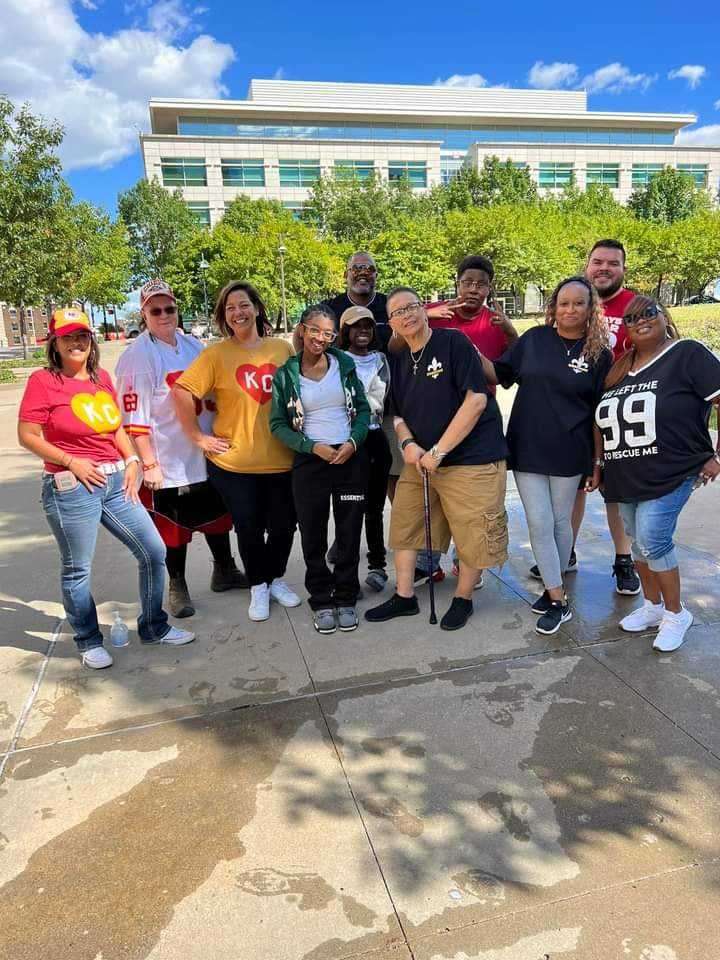
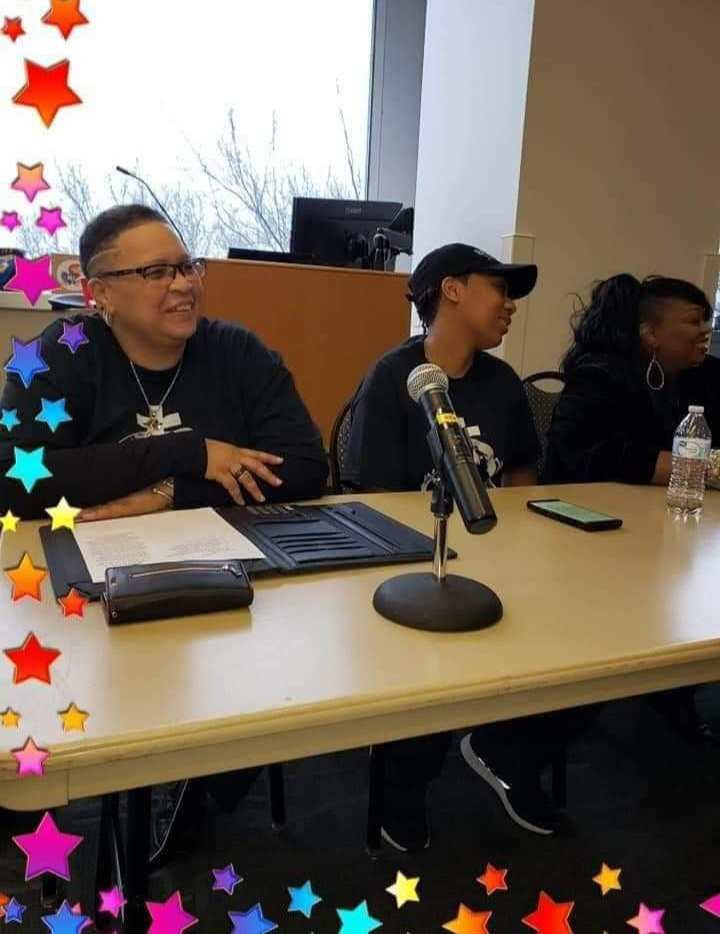
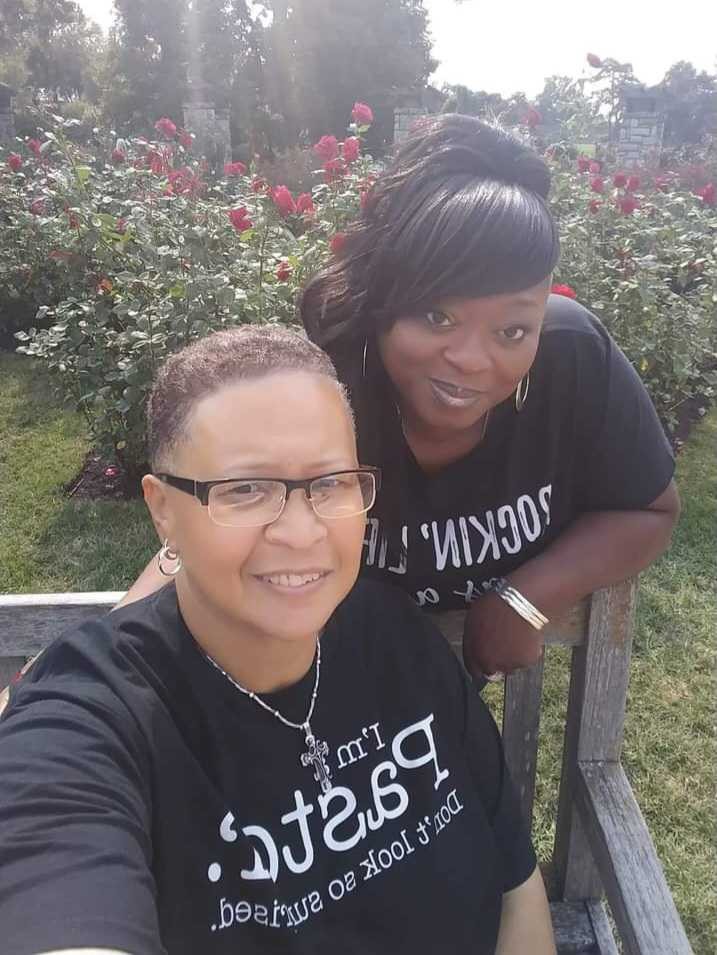
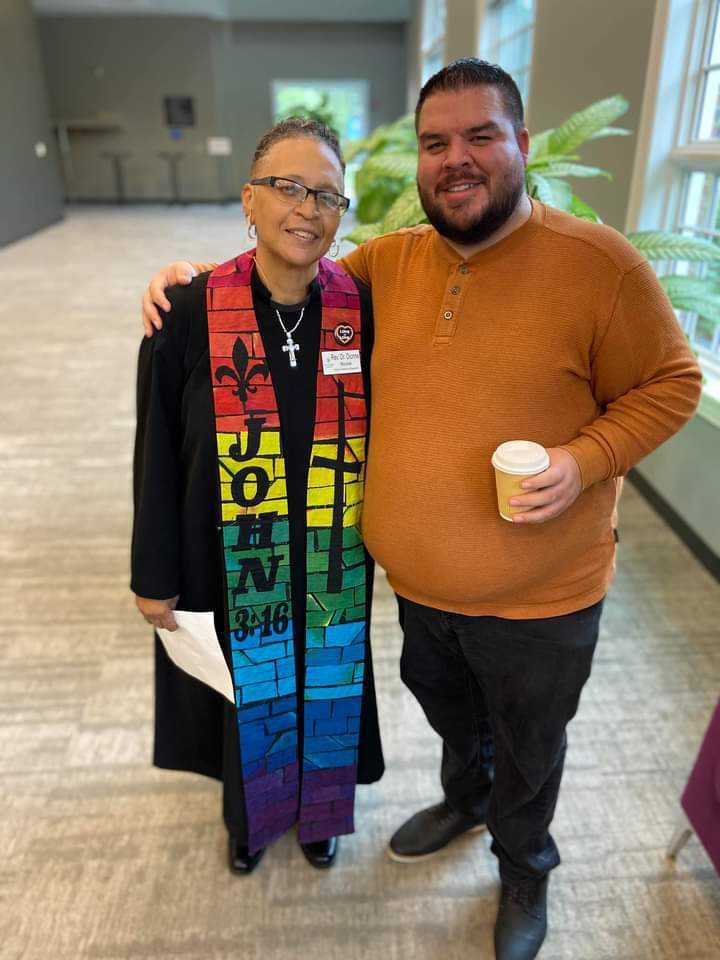
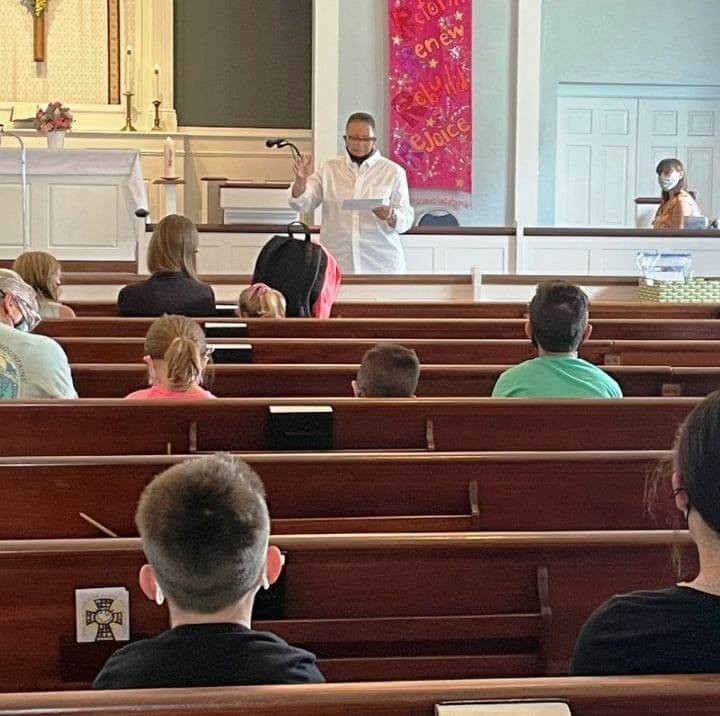
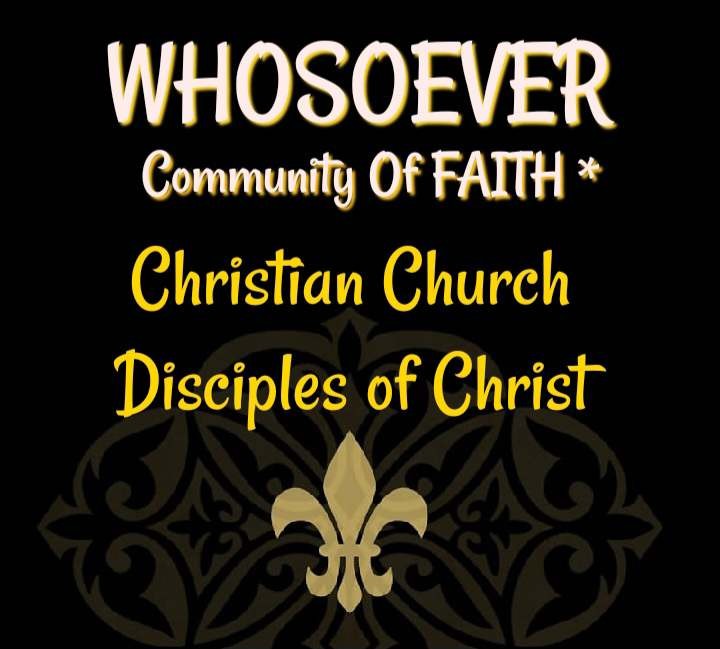
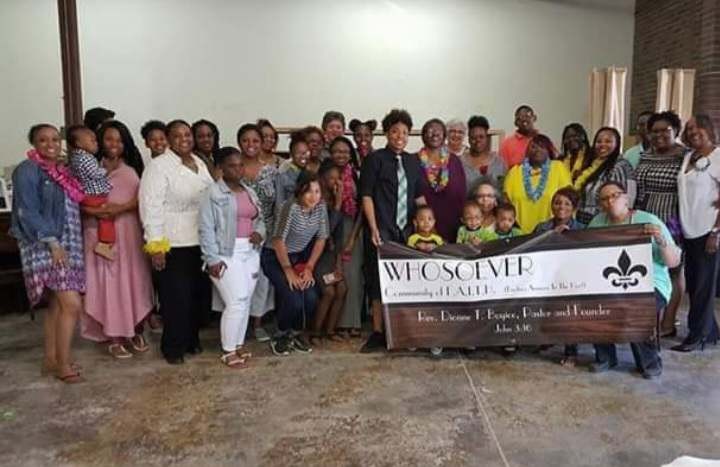
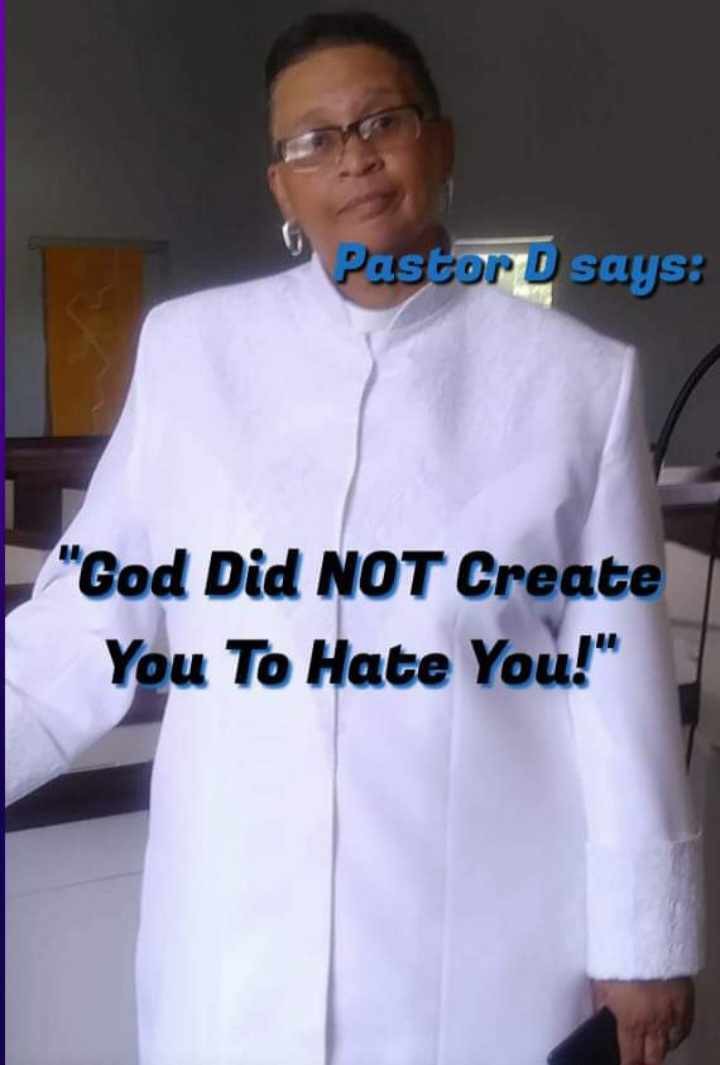
Image Credits
Tori “ToriTookIt” Stewart

